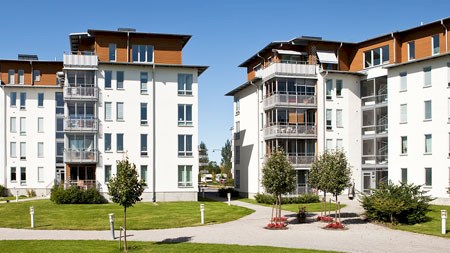Most tenants automatically assume that their landlords are making a fortune out of them. However, it pays to remember that there are different types of landlords who focus on different aspects of the market and the income earned from investment properties depends greatly on the type of property investors buy.
There's no ‘one size fits all’ approach with property and although as with all things property location is important, it's not the only consideration that should be taken into account when buying a second or third home.
Student rentals
There are a number of advantages to investing in this sort of property. For starters it doesn't have to be fancy and houses can be rented out on a per room basis. There is a downside though. Student tenants can be noisy and disruptive which may cause problems with the neighbours. You will probably have to maintain the property a lot more than you usually would - students aren't known for their handyman skills and don't necessarily take the best care of a property. The good news is you will never struggle to find tenants and if you insist the parents co-sign the lease, you won't generally be at risk of defaulting payers.
Holiday home rentals
Renting out a second home can certainly add a little extra to the coffers, but there is some risk associated with leasing out a property that is far from the landlord’s primary residence. Although there may be an increase in demand over peak holiday periods, some holiday areas virtually die when the visitors go home. This can be tricky when it comes to determining a monthly rental and a landlord may be disappointed at what he can charge in off-peak seasons.
Maintenance can be another problem. Anyone considering a long distance rental needs to become acquainted with local handymen, plumbers and electricians and only deal with trusted service providers. The same goes for an estate agent. It's highly advisable to choose an agent who has a solid reputation within the area in which the property is situated. They should also have a valid Fidelity Fund certificate.
On the plus side, owning a second home in an idyllic spot is ideal for someone who has bought with the intention of retiring at the beach or in the mountains.
Upmarket homes
The idea of earning an exorbitant amount from a home rental is undoubtedly appealing, but once again, not everything is as it seems. Firstly, properties in this category need to be kept in pristine condition. Secondly, no one should assume that because someone wants to live in a palace they necessarily have the means to fund the lifestyle. A recent report released by FNB and TPN indicated that only 77.5 percent of those paying rent of R25 000 original more per month were regarded as being in good standing. While 22% (the percentage of tenants who defaulted on payments in this sector) may not seem like a big deal, it needs to be remembered that 88.4% of those who were paying between R7 000 and R12 000 were found to be in good standing.
It's always recommended that anyone thinking of buying property conduct proper research before making a decision. The same applies to an investment property – never make assumptions about the rental value of a home. Do some investigating before you buy in order to ensure that the returns are going to live up to your expectations.




